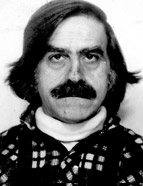

Upon completion of his teacher training at the Liceu Pedro Nunes, he returned to the Faculdade de Letras as a teacher (1941), in a position that would allow him to envisage a secure and comfortable career. He submitted his doctoral thesis on Gil Vicente e o fim do teatro medieval [Gil Vicente and the end of mediaeval drama] in 1942 following the same analytical perspective he had used in the essay on Bernardim Ribeiro, and conceptually confined to the hermeneutics of German tradition and to the influence of J. Huizinga’s studies on the same period. Notwithstanding his brilliant beginning as a university teacher, the following year he lost his university position for deontological reasons due to pedagogical differences with his supervisor. As a result, he was forced to teach at secondary level, first at the Liceu Passos Manuel in Lisbon (1944-1945), and then at the Liceu Gonçalo Velho in Viana do Castelo (1945-1949). In 1949, his growing commitment to the opposition of Salazar’s authoritarian regime culminated in his persecution and arrest. At the time he was member of the illegalised Partido Comunista Português [Portuguese Communist Party] having joined the party in 1944 with the aid of Óscar Lopes, a fellow trainee and philologist. Following his arrest in 1949, and as a means of further retaliation, a government decree expelled him definitively from public and private teaching. This dealt another severe blow to his expectations, one which affected him financially and psychologically, as unequivocally witnessed. Despite his predicament as a result of his expulsion from the teaching profession, A. J Saraiva enjoyed a prestigious reputation, not only among the intelligentzia not directly linked to the regime, but also in other sectors.
From then on, following a period of severe emotional exhaustion in this new and troubled period of his life, he immersed himself in research and writing, two activities that enabled him to support the family he had formed in the interim. Among other didactic or literary criticism books, he began an ambitious research project which culminated in História da Cultura em Portugal [History of Culture in Portugal] (3 vols. I, 1950; II, 1955 and III, 1962), undoubtedly his opus magnum and one of the main achievements of mid-twentieth century Portuguese historiography. The findings of previous general or specialised research were used in this study as was the non-specified collaboration of Jorge de Macedo, Luís de Albuquerque and Óscar Lopes in the first two volumes. Both the above-mentioned works on Bernardim Ribeiro and Gil Vicente and the first synthesis on the Inquisição Portuguesa [Portuguese Inquisition] (1953) featured in this research.
